FSTC Reporting 2025: Your Compliance Obligation Is Also Your Voice for Change
As the Financial Sector Transformation Council (FSTC) opens reporting for the 2025 cycle, financial institutions across South Africa have a critical opportunity, not just to comply, but to shape the future of transformation in the sector.
For all entities with annual revenue above R10 million, this reporting period is a legal and strategic inflection point. Submissions to the FSTC, due no later than 27 February 2026, are more than administrative checkboxes. They’re the sector’s collective voice on what’s working, what’s not and where transformation needs to evolve.
Why Reporting Matters
B-BBEE compliance reporting is often viewed as a regulatory burden. But in truth, it’s a feedback loop — one that determines how policy evolves, how incentives are structured, and how performance is benchmarked across the financial services sector.
Your submission becomes part of the FSTC’s national analysis on transformation progress. When aggregated, these reports directly influence the Financial Sector Code’s periodic reviews and the sector’s engagement with National Treasury and the Department of Trade, Industry and Competition (the dtic).
By reporting, you:
- Demonstrate your commitment to transparency and ethical governance.
- Contribute data that influences future scorecard targets and industry reform.
- Strengthen your institution’s credibility with clients, regulators, and investors.
Conversely, failing to report undermines transformation progress — and exposes your organisation to regulatory risk, reputational damage, and procurement exclusion from government, state-owned entities, and corporates with stringent B-BBEE procurement thresholds.
The Real Challenge: Skills Development & Representation
In our work with major financial institutions, Okiru frequently sees a common struggle: achieving Skills Development points for senior and executive management under the Financial Services Sector Code.
The challenge isn’t lack of intent — it’s the structure of the scorecard itself. Segmented targets for Black employees at senior levels are often misaligned with industry demographics, where historical representation gaps remain wide. The result?
- High-cost training initiatives with low scoring impact.
- Fragmented development programmes not aligned to scorecard priorities.
- Underutilised opportunities for claimable learning pathways.
At Okiru, we help financial institutions navigate these barriers strategically, not by chasing points, but by building sustainable, high-impact Skills Development frameworks that integrate with Employment Equity, Talent Development and Transformation Strategy.
Our approach includes:
- Alignment of training investments to high-impact categories (Category A–G training under the Code).
- Executive mentorship models for targeted representation outcomes.
- Integrated WSP/ATR and EE Reporting to support compliance and audit readiness.
- Real-time B-BBEE scorecard tracking and progress analytics.
Compliance Is Not Just a Legal Obligation — It’s Strategic Leverage
Government departments, regulators, and listed entities such as Alex Forbes, ABSA, and Discovery are tightening procurement and partnership standards. For many, a Level 1 or 2 B-BBEE rating is now a baseline requirement.
By complying with FSTC reporting, you do more than satisfy the law:
- You position your organisation for preferential procurement and investment access.
- You help influence sector-wide transformation targets.
- You build a data-backed case for future policy adjustments that reflect your operational realities.
How Okiru Can Help
At Okiru Consulting, we combine deep expertise in Financial Services Sector Codes, Employment Equity, and Skills Development to help financial institutions:
- Prepare and submit complete, audit-ready FSTC reports.
- Develop or refine B-BBEE Scorecard strategies that improve results without inflating cost.
- Design integrated transformation frameworks that meet both compliance and commercial goals.
- Train internal teams through B-BBEE and Employment Equity compliance workshops.
Whether you’re reporting as an EME, QSE or large financial institution, Okiru ensures your submission reflects your impact, mitigates your risk and strengthens your transformation position.


